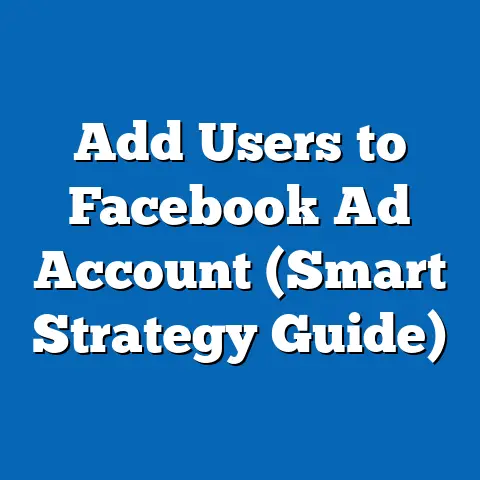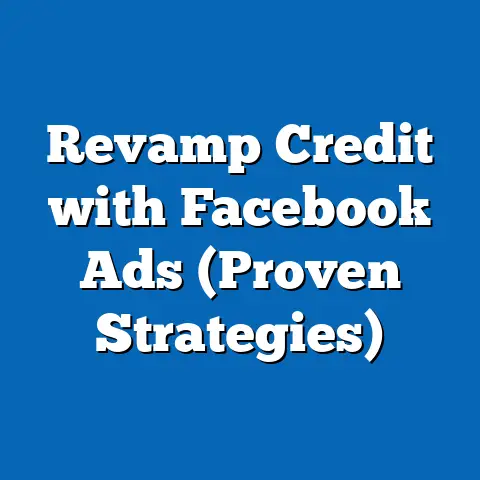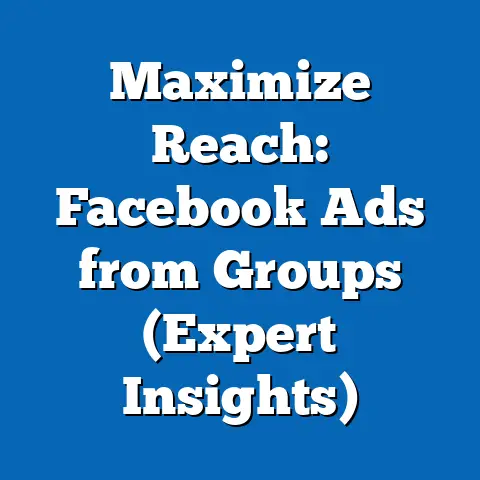Can You Join a Facebook Group Without Approval? (Must-Know Insight)
Facebook. It’s a name synonymous with social media, a platform that has woven itself into the fabric of our daily lives. From sharing vacation photos to staying connected with distant relatives, Facebook offers a versatile suite of tools. But beyond personal use, it’s a powerhouse for professional networking, community building, and even niche marketing. I’ve personally witnessed countless businesses and organizations leverage Facebook to foster engagement and cultivate a loyal following. One of the most effective tools for this? Facebook Groups.
Think of Facebook Groups as digital town squares, where like-minded individuals gather to discuss shared interests, exchange knowledge, and support one another. Whether you’re a die-hard fan of a particular TV show, a budding entrepreneur seeking advice, or a professional looking to expand your network, there’s likely a Facebook Group tailored to your needs. I remember when I first started my marketing agency, I joined several Facebook Groups dedicated to digital marketing. The insights and connections I gained were invaluable in those early stages.
But joining a Facebook Group isn’t always as simple as clicking a button. Many groups have an approval process, meaning your request to join must be vetted by the group’s administrators or moderators. This brings us to the central question of this article: Can you join a Facebook group without approval?
This question is more relevant than ever, especially as Facebook continues to refine its platform and prioritize user experience. Understanding the mechanics of Facebook Groups, the different types of groups available, and the intricacies of the approval process is crucial for anyone looking to effectively navigate this powerful tool.
- The Fundamentals: What Facebook Groups are, their purpose, and the different types (public, closed, and secret).
- The Gatekeepers: The role of group admins and moderators in managing group dynamics and membership.
- Access Denied (or Not?): The approval process for joining groups, including the criteria admins use to approve or deny requests.
- The Great Debate: Can you actually join a Facebook group without approval? I’ll explore potential loopholes and alternative methods.
- Playing by the Rules: The importance of group guidelines and etiquette, and the consequences of violating them.
- Looking Ahead: The future of Facebook Groups and how changes in the platform may impact user engagement and membership processes.
By the end of this article, you’ll have a thorough understanding of Facebook Groups and be equipped with the knowledge to navigate the platform effectively, whether you’re looking to join, manage, or simply understand the dynamics of these online communities. So, let’s dive in!
Section 1: Understanding Facebook Groups
Facebook Groups are more than just chat rooms; they’re dynamic online communities centered around shared interests, causes, or affiliations. They provide a space for members to connect, collaborate, and engage in discussions relevant to the group’s theme. I’ve seen groups formed around everything from local book clubs to international support networks for specific medical conditions. The possibilities are truly endless.
At their core, Facebook Groups serve several key purposes:
- Community Building: They bring together individuals who share common interests, fostering a sense of belonging and connection. I’ve observed how groups can provide a safe and supportive environment for individuals who might otherwise feel isolated.
- Knowledge Sharing: Groups act as hubs for information exchange, allowing members to share expertise, ask questions, and learn from one another. In my experience, these groups are invaluable for staying up-to-date on industry trends and best practices.
- Networking: They offer opportunities for members to connect with like-minded individuals, expanding their professional or personal networks. I’ve personally made some valuable connections through Facebook Groups that have led to collaborations and new opportunities.
- Support: Many groups are formed to provide emotional or practical support to members facing specific challenges. These groups can be a lifeline for individuals navigating difficult circumstances.
- Marketing & Promotion: Businesses and organizations can use groups to promote their products or services, engage with customers, and build brand loyalty. However, it’s crucial to do this in a way that’s authentic and provides value to the community, rather than simply spamming members with promotional content.
Public, Closed, and Secret: The Three Pillars of Facebook Group Privacy
One of the most important aspects of understanding Facebook Groups is recognizing the different types available, as each type dictates the level of visibility and accessibility. Facebook offers three primary group types:
- Public Groups: These are the most open and accessible type of group. Anyone on Facebook can see the group’s name, description, member list, and all posts within the group. Joining a public group is typically straightforward, often requiring no approval from admins or moderators. I often recommend public groups for businesses looking to build brand awareness and attract a wide audience.
- Closed Groups: These groups offer a greater degree of privacy. While anyone can find the group on Facebook and see its name and description, only members can view the member list and the content posted within the group. Joining a closed group typically requires approval from an admin or moderator. Closed groups are ideal for communities that want to maintain a degree of exclusivity and foster more intimate discussions.
- Secret Groups: These are the most private type of Facebook Group. They are hidden from public search, meaning only members can find the group and see its existence. Joining a secret group requires an invitation from an existing member or admin. Secret groups are often used for sensitive topics or for communities that want to maintain a high level of privacy.
The choice of group type depends heavily on the specific goals and needs of the community. For example, a group dedicated to discussing sensitive health issues would likely opt for a secret or closed group to protect the privacy of its members. On the other hand, a group promoting a local business might choose a public group to maximize visibility and reach.
The Guardians: Roles of Group Admins and Moderators
Behind every successful Facebook Group is a team of dedicated administrators and moderators who work tirelessly to maintain order, foster engagement, and ensure that the group remains a positive and productive space.
-
Administrators (Admins): Admins are the highest level of authority within a Facebook Group. They have the power to:
- Manage group settings, including privacy settings and membership requirements.
- Approve or deny membership requests.
- Remove members who violate group rules.
- Appoint and remove moderators.
- Edit or delete posts and comments.
- Feature important announcements.
- Ultimately, shape the direction and culture of the group.
-
Moderators (Mods): Moderators assist admins in managing the day-to-day operations of the group. Their responsibilities typically include:
- Monitoring posts and comments for violations of group rules.
- Approving or denying membership requests (depending on admin permissions).
- Removing inappropriate content.
- Responding to member inquiries.
- Generally, maintaining a positive and respectful environment within the group.
Administrators (Admins): Admins are the highest level of authority within a Facebook Group. They have the power to:
- Manage group settings, including privacy settings and membership requirements.
- Approve or deny membership requests.
- Remove members who violate group rules.
- Appoint and remove moderators.
- Edit or delete posts and comments.
- Feature important announcements.
- Ultimately, shape the direction and culture of the group.
Moderators (Mods): Moderators assist admins in managing the day-to-day operations of the group. Their responsibilities typically include:
- Monitoring posts and comments for violations of group rules.
- Approving or denying membership requests (depending on admin permissions).
- Removing inappropriate content.
- Responding to member inquiries.
- Generally, maintaining a positive and respectful environment within the group.
I’ve personally served as both an admin and a moderator in various Facebook Groups, and I can attest to the significant responsibility that comes with these roles. It requires a delicate balance of enforcing rules, fostering engagement, and responding to the needs of the community.
Why Join the Party? Benefits of Facebook Group Membership
Joining Facebook Groups can offer a wide range of benefits, both personally and professionally. Here are some key advantages:
- Networking Opportunities: As I mentioned earlier, groups provide a platform for connecting with like-minded individuals, expanding your network, and building valuable relationships. I’ve found that engaging in discussions and sharing your expertise can significantly enhance your visibility and credibility within your industry.
- Access to Exclusive Content: Many groups offer exclusive content, such as tutorials, webinars, or discounts, that are not available elsewhere. This can be a valuable resource for learning new skills or gaining access to valuable resources.
- Community Support: Groups can provide a sense of community and support, especially for individuals facing specific challenges. Sharing experiences and receiving encouragement from fellow members can be incredibly empowering.
- Staying Informed: Groups are a great way to stay up-to-date on the latest news, trends, and information in your field of interest. I rely on several Facebook Groups to stay informed about the ever-changing landscape of digital marketing.
- Promoting Your Work: While it’s important to avoid blatant self-promotion, groups can provide opportunities to share your work and gain feedback from your peers. I’ve found that sharing valuable content and engaging in discussions can naturally lead to opportunities to showcase your expertise.
Key Takeaway: Facebook Groups are powerful tools for community building, knowledge sharing, and networking. Understanding the different types of groups and the roles of admins and moderators is crucial for navigating the platform effectively.
Next Step: Identify a few Facebook Groups that align with your interests or professional goals and consider joining them. Pay attention to the group’s rules and guidelines, and start engaging in discussions to build connections and contribute to the community.
Section 2: The Approval Process for Joining Groups
Now, let’s delve into the nitty-gritty of joining a Facebook Group, specifically the approval process. As I mentioned earlier, not all groups require approval, but many do, especially closed and secret groups. Understanding this process is key to successfully gaining membership and becoming an active participant in the community.
The General Process: Request, Wait, and (Hopefully) Receive
The typical process for joining a Facebook Group involves the following steps:
- Find the Group: Use the Facebook search bar to find groups that align with your interests or goals. You can filter your search results by group type (public, closed, or secret).
- Request to Join: Once you’ve found a group you’re interested in, click the “Join Group” button.
- Answer Membership Questions (if applicable): Some groups require you to answer a few questions before submitting your request. These questions are designed to help admins assess your suitability for the group and ensure that you understand the group’s rules and purpose.
- Wait for Approval: After submitting your request, you’ll need to wait for an admin or moderator to review and approve it. The approval time can vary depending on the group’s activity level and the availability of its admins.
- Receive Notification: If your request is approved, you’ll receive a notification from Facebook informing you that you’ve been added to the group. You can then start participating in discussions and engaging with other members.
It’s important to note that the approval process can be more or less stringent depending on the group’s privacy settings and the preferences of its admins. Public groups, as I mentioned, often have no approval process at all, while secret groups may require a personal invitation from an existing member.
The Gatekeepers’ Criteria: What Admins Look For
So, what exactly do admins and moderators look for when reviewing membership requests? While the specific criteria can vary from group to group, here are some common factors that influence their decisions:
- Profile Completeness: Admins often prefer to approve members with complete and professional-looking profiles. This includes having a clear profile picture, a detailed bio, and a history of activity on Facebook. A bare or incomplete profile may raise red flags and lead to your request being denied. I’ve seen admins explicitly state that they only approve requests from users with real names and profile pictures.
- Mutual Friends: Having mutual friends with existing group members can significantly increase your chances of approval. Admins often view mutual friends as a sign of credibility and trustworthiness. I’ve personally used mutual friends as a way to vouch for potential members in groups I manage.
- Answers to Membership Questions: If the group requires you to answer membership questions, your responses can play a crucial role in the approval process. Admins will be looking for thoughtful and informative answers that demonstrate your understanding of the group’s purpose and your willingness to abide by its rules. Vague or dismissive answers may lead to your request being denied. I always advise potential members to take these questions seriously and provide detailed and honest responses.
- Alignment with Group Purpose: Admins want to ensure that new members are genuinely interested in the group’s topic and will contribute positively to the community. If your profile or your answers to membership questions suggest that you’re not a good fit for the group, your request may be denied. For example, if you’re trying to join a group for vegan recipes but your profile is filled with pictures of meat dishes, your request might be viewed with skepticism.
- Spammy or Promotional Behavior: Admins are wary of users who appear to be joining groups solely for promotional purposes. If your profile is filled with advertisements or if you’re constantly posting links to your own website, your request may be denied. It’s important to remember that Facebook Groups are primarily for community building and knowledge sharing, not for blatant self-promotion.
Privacy Matters: How Settings Impact Approval
The group’s privacy settings also have a significant impact on the approval process. As I explained earlier, public groups often have no approval process at all, while closed and secret groups typically require approval from an admin or moderator.
- Public Groups: Since anyone can see the group’s content, there’s generally no need for an approval process. The focus is on attracting as many members as possible and maximizing visibility.
- Closed Groups: The approval process in closed groups is designed to maintain a degree of exclusivity and ensure that new members are genuinely interested in the group’s topic. Admins want to create a safe and supportive environment for members to share their thoughts and experiences without fear of judgment or harassment.
- Secret Groups: The approval process in secret groups is the most stringent, as the primary goal is to protect the privacy of the members and the confidentiality of the discussions. Admins often require a personal invitation from an existing member or a thorough vetting process before granting membership.
Common Challenges: Why Requests Get Rejected
Despite your best efforts, your request to join a Facebook Group may still be denied. Here are some common reasons why this might happen:
- Incomplete Profile: As I mentioned earlier, having a complete and professional-looking profile is crucial for gaining approval.
- Lack of Mutual Friends: If you have no mutual friends with existing group members, your request may be viewed with skepticism.
- Poor Answers to Membership Questions: Vague, dismissive, or irrelevant answers to membership questions can significantly decrease your chances of approval.
- Violation of Group Rules: If your profile or your answers to membership questions suggest that you’re likely to violate the group’s rules, your request may be denied.
- Admin Overload: Sometimes, admins are simply overwhelmed with membership requests and may not have the time to review each one thoroughly. In these cases, your request may be overlooked or denied simply due to time constraints.
- Mistakes Happen: Admins are human, and sometimes they make mistakes. Your request may be accidentally denied, even if you meet all the criteria for membership.
Key Takeaway: The approval process for joining Facebook Groups can vary depending on the group’s privacy settings and the preferences of its admins. Having a complete profile, answering membership questions thoughtfully, and demonstrating a genuine interest in the group’s topic can significantly increase your chances of approval.
Next Step: Review your Facebook profile and ensure that it’s complete and professional-looking. When requesting to join a group, take the time to answer membership questions thoughtfully and demonstrate your understanding of the group’s purpose and rules.
Section 3: Can You Join a Facebook Group Without Approval?
This is the million-dollar question, isn’t it? After all this talk about approval processes and admin criteria, you might be wondering if there’s a way to circumvent the system and join a Facebook Group without going through the traditional approval route.
The short answer is: Generally, no. For closed and secret groups, the approval process is designed to be a gatekeeper, ensuring that only qualified and trustworthy individuals are granted membership. Circumventing this process would undermine the group’s privacy and security, and it’s generally frowned upon by admins and members alike.
However, there are a few exceptions and alternative methods that might allow you to access a group without explicitly being approved:
- Joining Through a Shared Link: Sometimes, admins or members will share a special link that allows new members to join the group without going through the standard approval process. These links are typically used for specific events or promotions, and they may have a limited lifespan. I’ve seen this used effectively for onboarding new employees into company-related groups.
- Being Added by an Existing Member: In some cases, existing members may have the ability to add new members to the group without requiring admin approval. This is more common in smaller, less restrictive groups. However, it’s important to note that adding someone to a group without their consent can be considered spammy and may violate Facebook’s terms of service.
- Public Groups, Obviously: As we’ve discussed, public groups are open to everyone and don’t require any approval process. If you’re looking for a quick and easy way to join a Facebook Group, a public group is your best bet.
- Admin Error: It’s rare, but sometimes an admin might accidentally approve your request without fully reviewing your profile or answers to membership questions. This is more likely to happen in larger groups with a high volume of membership requests.
It’s important to emphasize that these methods are not guaranteed to work, and they may not be ethically or legally sound. Attempting to circumvent the approval process could lead to your request being denied, your account being suspended, or even legal action being taken against you.
Ethical Considerations: Is it Right to Bypass the System?
Before you even consider attempting to join a Facebook Group without approval, it’s crucial to consider the ethical implications. Is it fair to bypass the system that admins and moderators have put in place to protect the group’s privacy and security?
In most cases, the answer is no. The approval process is designed to ensure that new members are genuinely interested in the group’s topic, that they understand the group’s rules, and that they’re not likely to cause harm or disruption to the community. Circumventing this process would undermine these goals and could potentially lead to a negative experience for all members.
Furthermore, attempting to bypass the approval process could be seen as disrespectful to the admins and moderators who volunteer their time to manage the group. These individuals work hard to create a positive and productive environment for members, and their efforts should be respected.
Potential Risks: What Could Go Wrong?
Even if you manage to successfully join a Facebook Group without approval, there are potential risks to consider:
- Being Removed from the Group: If admins discover that you joined the group without going through the proper approval process, they may remove you from the group and ban you from future membership.
- Suspension of Your Account: Facebook has strict rules against spamming and other forms of disruptive behavior. If you’re caught attempting to bypass the approval process, your account may be suspended or even permanently banned.
- Legal Action: In extreme cases, attempting to bypass the approval process could lead to legal action being taken against you. This is more likely to happen if you’re using the group for illegal or malicious purposes.
- Damaged Reputation: If you’re caught attempting to bypass the approval process, your reputation could be damaged, both online and offline. This could make it difficult to join other groups or even find employment in your field.
Real-World Examples: Successes and Failures
While I generally advise against attempting to join a Facebook Group without approval, I’ve heard stories of individuals who have successfully used alternative methods to gain membership.
For example, I know someone who was added to a secret group by a friend without going through the admin approval process. However, this person was a close friend of the admin and was known to be a trustworthy and valuable member of the community.
On the other hand, I’ve also heard stories of individuals who were caught attempting to bypass the approval process and were promptly removed from the group and banned from future membership. In one case, an individual created a fake profile and used it to join a closed group without answering the membership questions. However, the admins quickly discovered the fake profile and removed it from the group.
These examples highlight the importance of considering the ethical implications and potential risks before attempting to join a Facebook Group without approval.
Key Takeaway: While there may be a few exceptions and alternative methods that might allow you to access a Facebook Group without approval, it’s generally not advisable to attempt to circumvent the system. The approval process is designed to protect the group’s privacy and security, and attempting to bypass it could lead to negative consequences.
Next Step: Instead of trying to bypass the approval process, focus on building a complete and professional-looking profile, answering membership questions thoughtfully, and demonstrating a genuine interest in the group’s topic. This will significantly increase your chances of being approved and becoming a valuable member of the community.
Section 4: The Importance of Group Guidelines and Etiquette
So, you’ve successfully joined a Facebook Group – congratulations! But the journey doesn’t end there. Being a good group member involves more than just passively lurking and absorbing information. It requires actively engaging in discussions, contributing valuable content, and adhering to the group’s guidelines and etiquette.
The Rulebook: Why Guidelines Matter
Most Facebook Groups have a set of rules and guidelines that members are expected to follow. These guidelines are designed to:
- Maintain a Positive and Respectful Environment: Guidelines often prohibit hate speech, harassment, and other forms of disrespectful behavior.
- Promote Relevant and Valuable Content: Guidelines may restrict the types of content that can be posted, such as advertisements or irrelevant links.
- Prevent Spam and Self-Promotion: Guidelines typically prohibit excessive self-promotion or spamming of the group with irrelevant content.
- Protect the Privacy of Members: Guidelines may restrict the sharing of personal information or sensitive content without consent.
- Ensure the Group Remains Focused: Guidelines help to keep the group focused on its intended topic and prevent discussions from veering off-topic.
I’ve seen firsthand how well-defined and enforced guidelines can transform a chaotic and unproductive group into a thriving and supportive community.
Consequences: What Happens When You Break the Rules?
Violating a Facebook Group’s guidelines can have serious consequences, including:
- Warning: In some cases, you may receive a warning from an admin or moderator for violating the rules.
- Post Deletion: Your post or comment may be deleted if it violates the group’s guidelines.
- Temporary Suspension: You may be temporarily suspended from the group, preventing you from posting or commenting.
- Permanent Removal: In severe cases, you may be permanently removed from the group and banned from future membership.
- Report to Facebook: If your behavior violates Facebook’s terms of service, the admins may report you to Facebook, which could lead to further action being taken against your account.
It’s important to take group guidelines seriously and to abide by them at all times. If you’re unsure about a particular rule, it’s always best to ask an admin or moderator for clarification.
Best Practices: How to Be a Good Group Member
Here are some tips for engaging in Facebook Groups in a positive and productive way:
- Read the Guidelines: Before you start posting or commenting, take the time to read the group’s guidelines carefully.
- Introduce Yourself: When you first join a group, consider introducing yourself and sharing your interests or goals.
- Be Respectful: Treat other members with respect and avoid engaging in personal attacks or disrespectful behavior.
- Provide Value: Share your knowledge, expertise, and insights to help other members.
- Ask Questions: Don’t be afraid to ask questions if you’re unsure about something.
- Engage in Discussions: Participate in discussions and share your thoughts and opinions.
- Avoid Self-Promotion: Limit self-promotion and focus on providing value to the community.
- Report Violations: If you see someone violating the group’s guidelines, report it to an admin or moderator.
- Be Patient: It takes time to build relationships and establish yourself as a valuable member of the community.
Building Relationships: The Key to Long-Term Success
Building positive relationships within Facebook Groups can enhance your overall experience and increase the likelihood of approval in other groups. Here are some tips for building strong relationships:
- Be Authentic: Be yourself and let your personality shine through.
- Be Helpful: Offer assistance and support to other members.
- Be Responsive: Respond to comments and messages in a timely manner.
- Be Appreciative: Thank other members for their contributions and support.
- Be Consistent: Engage in the group regularly to build relationships over time.
- Connect on a Personal Level: If you find someone you connect with, consider reaching out to them privately to build a more personal relationship.
Key Takeaway: Adhering to group guidelines and engaging in discussions in a respectful and valuable way is crucial for a rewarding experience on Facebook. Building positive relationships within groups can enhance your overall experience and increase the likelihood of approval in other groups.
Next Step: Review the guidelines of the Facebook Groups you’re currently a member of and make sure you’re adhering to them. Identify opportunities to engage in discussions, contribute valuable content, and build relationships with other members.
Section 5: The Future of Facebook Groups and User Engagement
The world of Facebook Groups is constantly evolving, shaped by changes in the platform itself, shifting user behaviors, and emerging trends in online communities. Understanding these dynamics is crucial for anyone looking to effectively leverage Facebook Groups for networking, community engagement, or marketing purposes.
Evolving Landscape: Changes in the Platform
Facebook is constantly rolling out new features and updates to its platform, and these changes can have a significant impact on the functionality and dynamics of Facebook Groups. Some recent changes that have affected groups include:
- Algorithm Changes: Facebook’s algorithm determines which content is shown to users in their newsfeeds. Changes to the algorithm can impact the visibility of group posts, making it more or less difficult for members to see and engage with group content.
- New Group Features: Facebook regularly introduces new features for groups, such as enhanced moderation tools, improved event management capabilities, and new ways to connect with members.
- Focus on Community Standards: Facebook has been increasingly focused on enforcing its community standards and cracking down on hate speech, misinformation, and other forms of harmful content. This has led to stricter moderation policies for groups and a greater emphasis on creating safe and inclusive environments.
Staying informed about these changes is crucial for adapting your strategy and maximizing your effectiveness within Facebook Groups.
Trends in User Engagement: What’s Working Now?
User engagement within Facebook Groups is also constantly evolving, driven by changing user behaviors and emerging trends in online communities. Some current trends include:
- Rise of Niche Communities: As Facebook has grown, users have become increasingly interested in joining smaller, more niche communities that cater to their specific interests. These niche communities often offer a more intimate and engaged environment than larger, more general groups.
- Emphasis on Authenticity: Users are increasingly seeking out authentic and genuine interactions within Facebook Groups. They’re less likely to engage with groups that feel overly promotional or inauthentic.
- Video Content Dominance: Video content continues to dominate social media, and Facebook Groups are no exception. Groups that incorporate video content into their strategy are often more successful at driving engagement.
- Interactive Experiences: Users are increasingly seeking out interactive experiences within Facebook Groups, such as polls, quizzes, and live Q&A sessions. These interactive experiences can help to boost engagement and create a more dynamic community.
What’s Next? Potential New Features and Updates
Looking ahead, here are some potential new features and updates that Facebook may introduce to enhance group functionality:
- Enhanced Monetization Options: Facebook may introduce new ways for group admins to monetize their groups, such as through subscriptions or sponsored content.
- Integration with Other Facebook Products: Facebook may further integrate groups with other Facebook products, such as Marketplace and Events, to create a more seamless user experience.
- AI-Powered Moderation Tools: Facebook may introduce AI-powered moderation tools to help admins more effectively manage their groups and enforce community standards.
- Virtual Reality Integration: As virtual reality technology becomes more mainstream, Facebook may explore ways to integrate groups with virtual reality experiences.
The Big Picture: Understanding the Dynamics for Success
Ultimately, the key to success with Facebook Groups is understanding the dynamics of the platform and adapting your strategy accordingly. This involves:
- Staying Informed: Staying up-to-date on the latest changes and trends in Facebook Groups.
- Creating a Valuable Community: Building a group that offers valuable content, fosters engagement, and provides a positive and supportive environment for members.
- Adhering to Community Standards: Enforcing community standards and creating a safe and inclusive environment for all members.
- Adapting Your Strategy: Being willing to adapt your strategy as the platform and user behaviors evolve.
By understanding the dynamics of Facebook Groups and adapting your strategy accordingly, you can effectively leverage this powerful tool for networking, community engagement, and marketing purposes.
Key Takeaway: The world of Facebook Groups is constantly evolving, shaped by changes in the platform, shifting user behaviors, and emerging trends in online communities. Understanding these dynamics is crucial for anyone looking to effectively leverage Facebook Groups.
Next Step: Stay informed about the latest changes and trends in Facebook Groups by following industry news sources and engaging with other group admins. Experiment with new features and strategies to see what works best for your community.
Conclusion
So, can you join a Facebook Group without approval? As we’ve explored throughout this article, the answer is generally no, especially for closed and secret groups. The approval process is designed to protect the group’s privacy and security, and attempting to circumvent it is generally not advisable.
However, understanding the dynamics of Facebook Groups, the different types of groups available, and the intricacies of the approval process is crucial for anyone looking to effectively navigate this powerful tool.
Remember:
- Facebook Groups are versatile tools for community building, knowledge sharing, and networking.
- Group types (public, closed, secret) dictate visibility and accessibility.
- Admins and moderators are the gatekeepers, managing membership and enforcing guidelines.
- Circumventing the approval process is generally not advisable.
- Adhering to group guidelines and etiquette is essential for a rewarding experience.
- The future of Facebook Groups is constantly evolving, so stay informed and adapt your strategy accordingly.
Ultimately, the most effective way to join a Facebook Group is to build a complete and professional-looking profile, answer membership questions thoughtfully, and demonstrate a genuine interest in the group’s topic. This will significantly increase your chances of being approved and becoming a valuable member of the community.
So, go forth and explore the world of Facebook Groups! Find communities that align with your interests, engage in discussions, contribute valuable content, and build relationships with other members. By doing so, you can unlock the full potential of this powerful tool and enhance your overall experience on Facebook.






